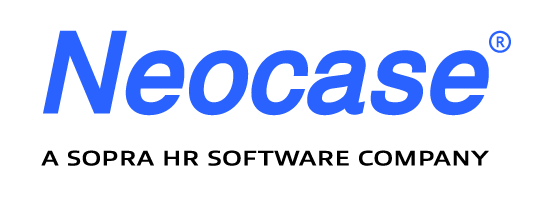Technology vendors can easily fall into a “control” mindset. Here's what it is, and how it happens...
The Control Mindset
If you’ve built the software, no one knows it better than you do, right?
And since you know the product best, you’re best suited to implement the product, right?
And since you’ve built the product and implemented the product, who better to support the product than you?
When it comes time to add new capabilities to the product, who else could possibly build the functionality to better integrate with the original product? Only you, right?
According to the control mindset, the customer experience is managed best when a single vendor owns the experience, from top to bottom. The most famous example comes from one of history’s most famous technology vendors and brands: Apple.
An Example of the Control Mindset
Steve Jobs was fond of saying that “(Apple products were) superior to other brands, because they were vertically integrated. Apple closely integrates the software with the hardware, and they just work.”
Apple built the operating system, the software applications, the hardware and even the related platforms (iTunes and the App Store). Support for Apple products is delivered by Apple employees in places like the “Genius Bar.” And you buy your Apple products in an Apple Store.
The goal of this vertical integration is to deliver an amazing customer experience. If you control every component, you control the result. It's worked for Apple, but is it the only way for a software company to create an amazing customer experience?
Not necessarily.
Last week’s 2017 Workday Rising Event in Chicago showed how multiple vendors with a shared vision can create an exceptional customer experience. Let’s take a closer look, starting with the product.
The Core Product – Workday HCM
Since its founding by Dave Duffield in 2005, Workday has ascended to a high leadership position in Gartner’s Magic Quadrant for Cloud HCM Suites for Midmarket and Large Enterprises. According to Gartner, Workday differentiates itself from its competitors by deploying all its HCM functionality on a natively developed application, with a single security model and user experience.
That sounds a lot like Apple, doesn’t it? Well wait, the story’s not over.
Implementations by Service Partners
Workday was first implemented at a customer site in 2007. That’s also when the first Service Partner joined forces with Workday. So, while Workday saw the wisdom of natively-developed software, they also saw wisdom in expanded their ecosystem to deliver customer satisfaction.
Integrated Applications by Certified Solution Partners
Rarely does a software product stand alone. Workday understands that its customers use other applications, and that they need those applications to reliably integrate with their Workday employee data.
Certified Solution Partners like Neocase have been through the Workday partner program to develop a full integration life cycle that meets the unique needs of our joint customers. These integrations have been through Workday's extensive Certification Program to ensure quality and consistency with Workday's products and release cycles.
While we’re on the topic of integrating applications into Workday, why not take it one step further…
The Open Cloud Platform
The Big Announcement at last week’s Workday Rising event was the decision to open the Workday platform to customers and partners. According to Dan Beck, Sr. VP of Workday Platform Technology, “We expect customers to utilize a combination of Workday Platform Services as well as third-party cloud services. We don’t just think this is okay; we expect it.”
The decision to open the platform is consistent Workday’s previous decisions to collaborate with external expertise (Service Partners and Solution Providers) for the benefit of the customer base. And Neocase is proud to be an early participant in this program, to make our solutions more conveniently accessible to Workday customers.
A well-orchestrated ecosystem will ultimately deliver more value to the customer than a well-controlled vertical integration by a single vendor.
A collaborative mindset ultimately creates more value than a control mindset.
[pexyoutube pex_attr_src="https://youtu.be/93C58-shvyg?t=11m50s" pex_attr_width="500"][/pexyoutube]

 Microsoft Teams
Microsoft Teams
 Workday
Workday
